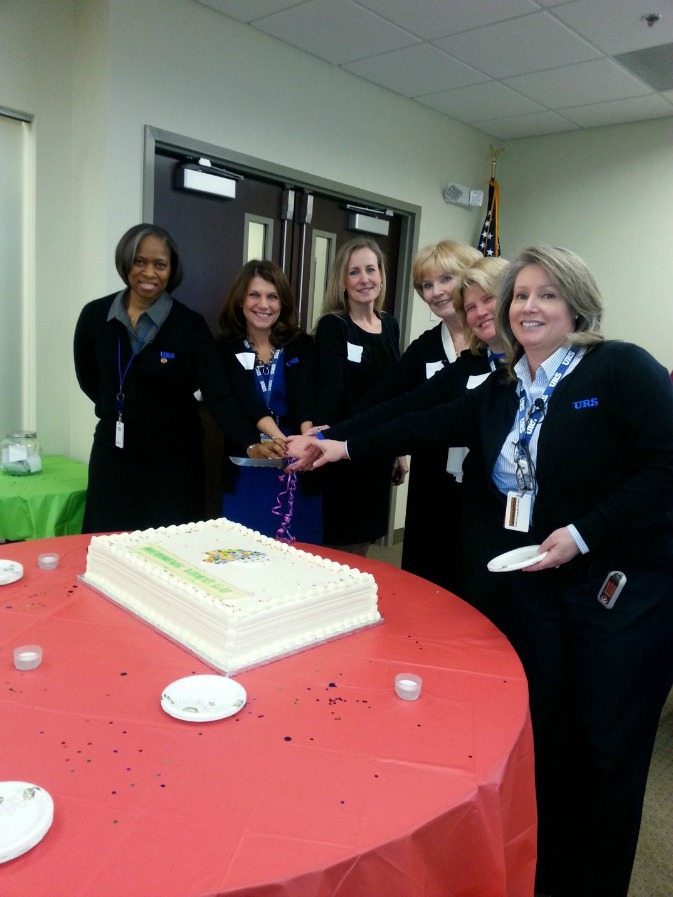
As a seasoned executive in the federal contracting space, URS General Manager of Global Security Services Jill Bruning is particularly well-positioned to offer insight on the changing landscape. She offered WashingtonExec her market insight as to where she sees the Intelligence Community (IC) headed over the next couple years as well as how she is seeing predictions when we spoke with her recently.
“We all know there are a couple of things driving the changing landscape in the federal government,” said Bruning. “Certainly there are the budget pressures, which we’ve all been dealing with. But there’s also a changing, more complex threat environment. So the combination of those two requires close attention to leveraging opportunities such as the electromagnetic spectrum battle space, cyber security, cyber intelligence, to show how we demonstrate value. So the one thing we can predict for sure is that things are becoming more complex and they’re changing quickly.”
Bruning earned her Master’s degree in mechanical engineering from M.I.T., she has 30+ years’ experience in the IC, and she even holds two patents for her work in cryogenics. In other words, Bruning is well-versed in STEM, an area gaining attention here in the Capital region, and beyond.
Bruning is also in the unique position of having the experience of pursuing STEM in her own education and mentoring other women in STEM now that she is a seasoned executive in the field. WashingtonExec asked Bruning to share her insights on STEM education and women in the workforce.
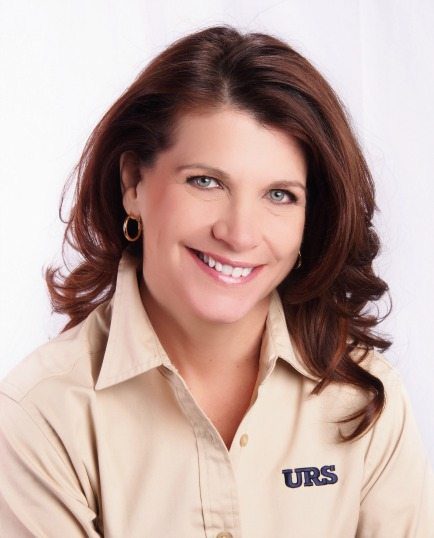
Girls in STEM
An engineer herself, Bruning has passionately pursued helping other women to become interested in, and excel at, STEM careers, too. We asked her how she became involved in helping future engineers and other math, science and technology professionals launch successful careers.
“Well, I’m a mechanical engineer. Both my master’s and bachelor’s are in mechanical engineering. What’s interesting is that growing up I didn’t really know any engineers or did not know much about the field. I was fortunate enough to have had a high school math teacher who said ‘Wow, you’re really good at math and science, you should be an engineer,’ so I checked the engineering box on my undergraduate college application as a major.”
But Bruning was in for a surprise when she arrived on the campus of the University of Illinois at Urbana-Champaign as an undergraduate. “I didn’t really realize I was getting into such a male dominated field until I went to my first engineering class and it was me and thirty guys. As a young 18-year-old, that was actually a positive thing,” she said. “So I don’t think I was fully prepared for the challenges at being in the engineering and sciences career; it has been learn-as-you-go.”
Now Bruning’s engineering journey has come full-circle, as she has built a very successful career for herself, yet still takes the time to reach back and lead other women to their own successes.
“I love engineering,” she said, “and working for URS now, which is a full lifecycle engineering company. We’re obviously very interesting in what we can do, not only in helping women in technology, but all genders and ethnicities into getting more STEM-educated and into the workforce.”
URS is an ideal place both to celebrate and encourage women in STEM.
“URS was voted one of the top STEM companies for women in 2014 by Diversity Comm Incorporated and Women’s Magazine, so we have a lot of programs involved with helping to educate and getting women into STEM education as well as hiring those women into our company,” said Bruning. “We also have an internal social network within URS (YAMMER) and the network for advancement for women is actually the most popular social media network within the entire company. We have a lot of things that help us build that community of women within the company,” she said.
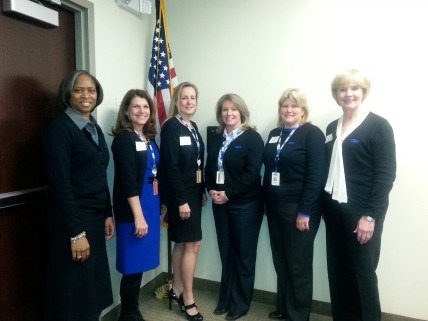
But Bruning knows that nurturing an interest in STEM must begin long before college majors are chosen and first jobs are offered.
“I have a daughter who is an elementary school teacher in inner city and she’s educated me a lot on STEM. That’s really what it’s about—getting people interested in technology,” she said. “A lot of STEM programs are focused on high school age and up, and I think that the next generation is exposed to technology much earlier so we have to focus on STEM. You see toddlers on iPads today; by middle school and high school it will be too late to get them interested in science and engineering and technology. The next generation has been introduced and is already interested in technology in preschool. Consequently, pushing STEM education and the STEM pipeline and advocacy into the earlier grades beginning from elementary school is going to be critical for that next generation.”
Bruning acknowledged recent press coverage that highlights just how critical STEM education is for the country’s future. “The sooner we can get our students engaged in the higher levels of math and science, the better off they are going to be competitively, and they’re going to stay interested too,” she said. “They are going to need a lot more challenges than we did and they need them earlier; they’re a lot smarter.”
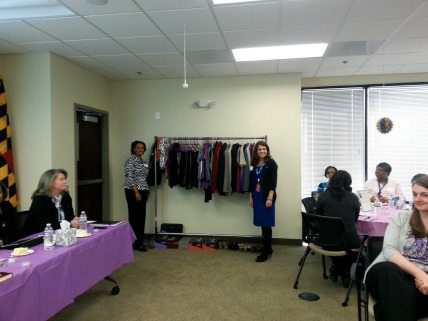
Women in the Workforce
As our conversation shifted from STEM education and promotion to women in the workforce, we asked Bruning to recap her speaking engagement for International Women’s Day. URS held a lunch event, during which the company’s women VPs (including Bruning) spoke about their careers, shared advice and answered questions from participants.
“I think it’s important to help mentor women entering the workforce and in our companies,” Bruning said. “Growing in my career, there weren’t really any women above me, so I feel it is necessary for us to be able to share our lessons learned and experiences to the next generation.”
Bruning is also involved in Women in Technology (WIT) in the Washington, DC area. Besides being an active member, she participated in the inaugural class of the Leadership Foundry. The Leadership Foundry was created to assist more women to serve on corporate boards. A panel of twelve executive women is selected every year.
“There’s extensive evidence that indicates that companies with more women on their boards outperform companies with no women directors,” she said. “Now the question becomes not why you should put women on boards but how to put the right women on boards. That’s what the Leadership Foundry is all about. We’ve had the opportunity not only to get trained but also network with very impressive and successful women.
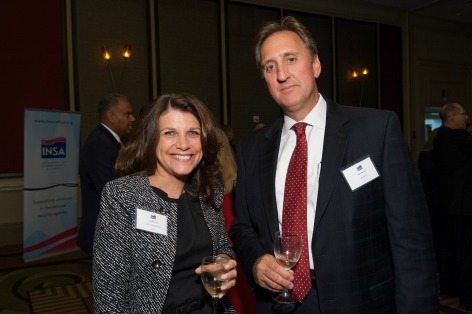
Words of Wisdom
Any professional – woman or man – who works with Bruning has the great opportunity to learn from her experience and be inspired by her steady climb to the top of the executive ladder. Fortunately for the DC area in which she works, Bruning is not only passionate about her own career, but also about mentoring others to pursue their professional goals in STEM and the federal government contracting industry as a whole.
Because she so generously gives of herself as a mentor, we had to ask if she would provide our readers with some advice before our time with Bruning came to an end.
For recent STEM graduates, she had this to say:
“You know, I think especially for women, we’re not by nature self-promoters, we’re very collaborative,” she said. “So I think stepping out and taking more risks earlier in our careers, being able to be flexible on obtaining what we want (it’s not a career ladder – – it’s a jungle gym), and don’t forget to focus on the process of your career rather than the outcome and enjoy the ride.”
And what about advice for people in general – for example, advice Bruning would offer her own children and grandchildren in their careers?
“Do what you love. It’s important to be passionate about your career and if you do what you love, you’ll be happy doing your work, and you’re going to perform well. If you perform well, you’re going to be happy. So first and foremost, find something that you love to do.”


